‘An amazing day’: Pre-Med students flock to UMMC event at JSU
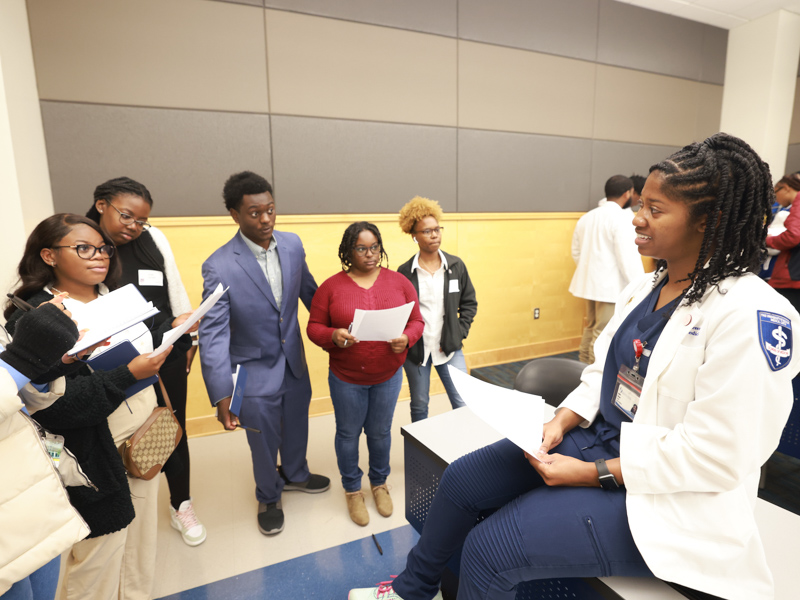
Don’t read too much into this, but one of the hurdles an aspiring medical student must clear has the ring of an apex predator: the MCAT.
There’s no denying that the Medical College Admission Test can eat you alive if you don’t know what you’re doing, and Jaylen Sandifer, for one, wants to prevent that from happening to others.
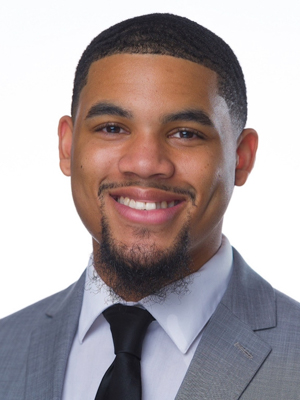
“You need to know how early you need to start preparing for it,” said Sandifer of Jackson, a pre-med major at Jackson State University. “You may not know that it costs money and that you may have to work and save to pay for that test, that you may have to find time to study for it while you’re working and going to school full-time.”
The MCAT process is just one chapter of what is often perceived as the ultimate medical school mystery: how to get into one.
In the interest of demystification, Sandifer and fellow JSU senior Jasmine Martin enlisted the support of their university and the University of Mississippi Medical Center to stage last week’s inaugural event on the JSU campus: Pre-Med Day, a bid to encourage more African American students to choose careers in medicine, as well as other health professions.
The partnership between the School of Medicine and JSU’s College of Science Engineering and Technology was billed as a “road map to becoming a physician” by Dr. Dan Coleman, medical school outreach director at UMMC.
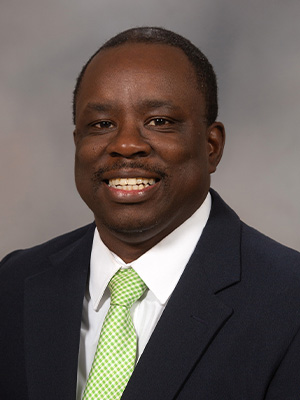
“It was an amazing day; we could not have been more pleased with the outcome,” Coleman said. “JSU students learned the pathway to getting into medical school. Around 150 to 170 showed up.”
That was a healthy majority of those who registered for the sessions held at JSU, one of Mississippi’s six Historically Black Colleges and Universities, where they were welcomed by Dr. Loretta Jackson-Williams, professor of emergency medicine and vice dean for medical education at UMMC.
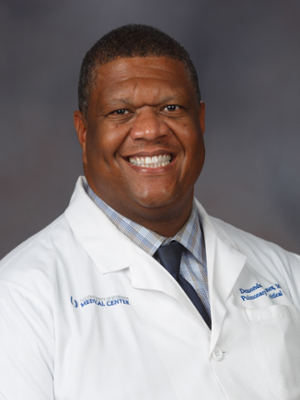
“It was the largest number of students to sign up for any of our [School of Medicine] events,” said Dr. Demondes Haynes, professor of medicine and associate dean of medical school admissions at UMMC.
For about five hours on Wednesday, the participants tapped into presentations from UMMC faculty and around 18 to 20 medical students, including senior Amia Green of Byram.
Green fielded questions about, among other things, school-life balance and her “illness.” “I acted as a patient with a condition and the students tried to figure it out,” she said. “I had diabetes.”
As bonuses, Dr. Hanna Broome represented the UMMC School of Graduate Studies in the Health Sciences, as associate dean of student affairs and recruitment; Dr. Kristin Nalls, assistant dean of student affairs for the School of Dentistry, promoted her school’s programs; Dr. Lisa Bryant, assistant professor of physical therapy, and Lauren Greenlee, project manager, appeared on behalf of the School of Health Related Professions; and Steven Carter, as associate director, boosted the Mississippi Rural Physicians Scholarship Program .
Students learned how to take blood pressure, perform a physical, take a patient’s history and latch onto research opportunities. And they heard about the MCAT – and from someone who had been down that road: Jayla Mondy of Clinton.
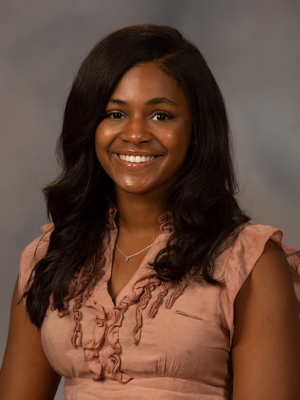
“When I was a junior in college, I had no idea what to do,” said Mondy, a second-year medical student. “I didn’t know the timeline for getting into medical school. I needed someone to tell me when you should be getting your letter of recommendation. That you take your MCAT at the end of your junior year in college.
“Eventually, I found Dr. Coleman, who provided me with guidance. Participating in Pre-Med Day is my way of giving back.”
Kristy Love-Kendrick, internship coordinator for JSU, was not surprised at the generous array of registrants. “The number who signed up tells us there’s a need,” she said.
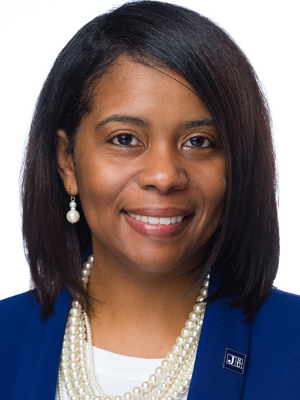
“It must be a scary situation trying to get into medical school. Your mindset may be: ‘Even If I do make it in, I still have the weight of the world on me to make sure I learn what I need to get through it.’”
That was once the mindset of Jasmine Martin of Madison, a JSU senior who wanted for a long time to become a doctor. “But the thought was so far-fetched,” she said. “It’s overwhelming and even more so if you don’t have a lot of people in your corner.”
Martin decided to major in computer engineering rather than pre-med. That’s before she discovered the resources available at UMMC through Coleman and others, she said.
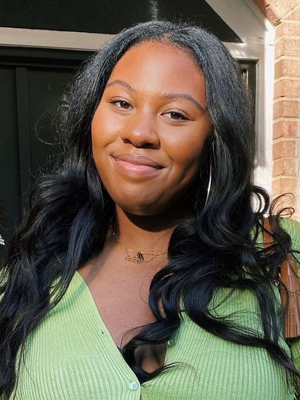
“But I did not change my major; I wanted to prove I could finish my degree in computer engineering.” Now, she also wants to prove that getting into medical school doesn’t have to seem far-fetched for others like her.
“You shouldn’t have to experience the feeling of being overwhelmed to the extent Jaylen and I did,” said Martin, who has revived her dream to apply to medical school. “You shouldn’t have to worry about having the resources to take the MCAT or if your score will be good enough.
“Pre-Med Day is meant to take away that worry from you. It’s a goldmine of information, everything you need to know. For me and Jaylen, that’s our heart.”
For Sandifer, it comes down to disheartening statistics. According to one study, 5.4 percent of physicians in the U.S. are Black or African American; less than 3 percent are African American men.
“So, it was beautiful to see the interaction between the medical students and physicians with the students here,” he said. “It shows the potential we have at Jackson State. I hope our students saw that there are Black men in medicine and were inspired.
“This is the perfect place for us to make a difference in those statistics. There are hundreds of Black men here at Jackson State. We know the numbers, but what are we doing to actually improve them? This event was a first step to help solve that problem.”
One problem, Haynes said, is that “the African American population of Mississippi is about 38 percent of the total, much higher than the percentage of African American physicians.
“We believe, and there is great data to support this, that patients will identify more with a physician who looks like them and are more likely to adhere to a treatment plan. So, the overall goal is not just to have more African American physicians; it’s to reduce health care disparities in the state.”
Those disparities exist, in part, because “a lot of members of our African American communities don’t go to the doctor,” JSU’s Love-Kendrick said.
“But, if they see more African American physicians, they may be more prone to going to the doctor and ask questions about problems they may think no one else understands.”
The hopes for Pre-Med Day include the formation of a lasting partnership between UMMC and JSU for this type of event and others.
It’s Mondy’s hope that the occasion reminded students “that patients need them,” she said. “There is a disproportionate number of HBCU students enrolled in pre-medical programs who don’t matriculate into medical school.
“I hope the ones at Pre-Med Day left knowing that they have a support system just down the street, at UMMC; and if they want to be a doctor, they can be a doctor.”


